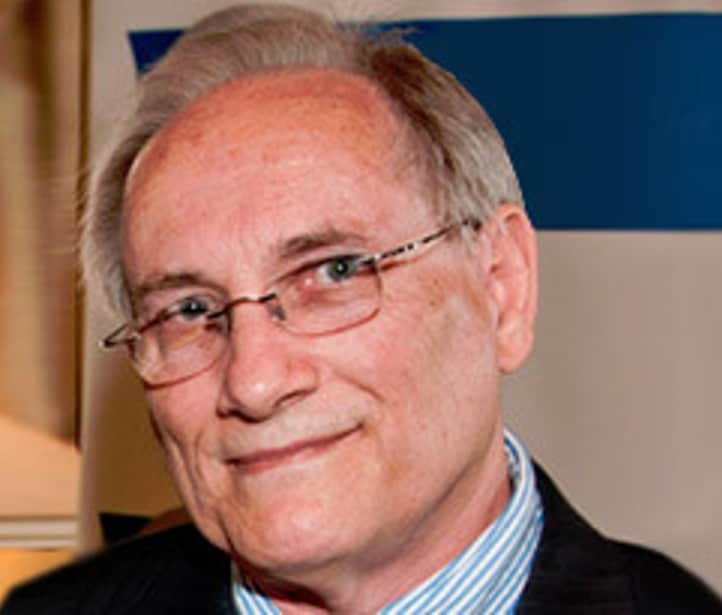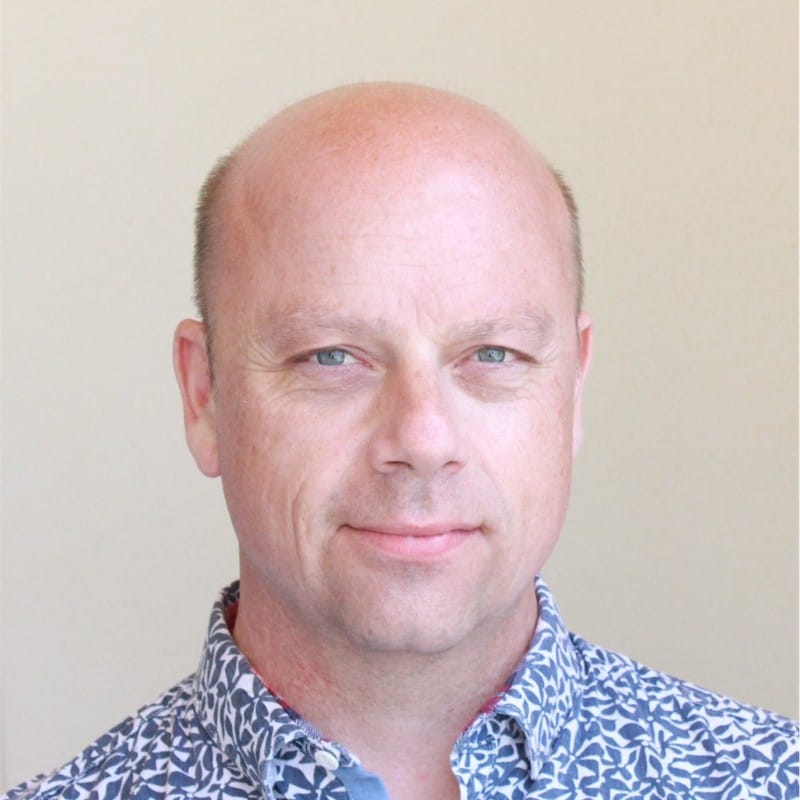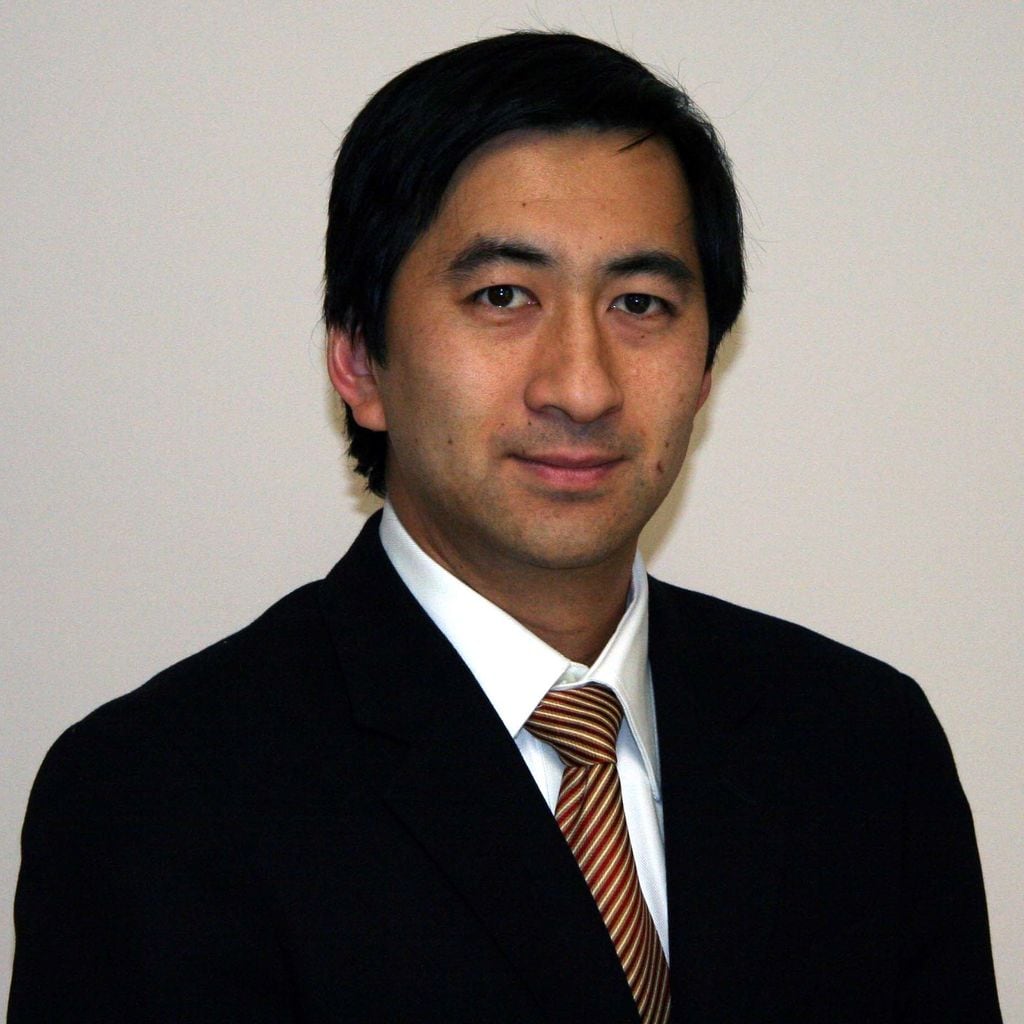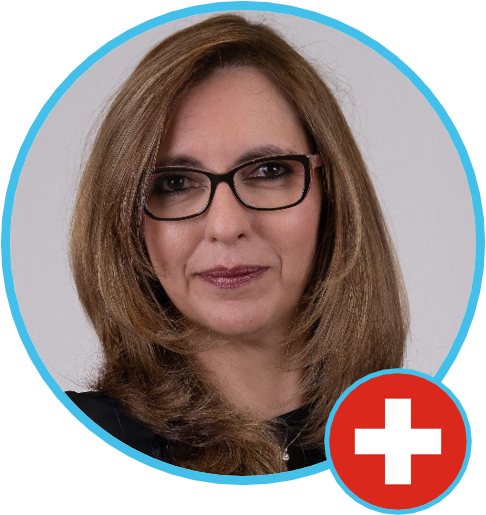Dr Winfried Amoaku - Chair of Dermatology Ophthalmology and ENT (DOE) Management Committee, UK Honorary Consultant Ophthalmologist, Nottingham University Hospitals NHS Trust (QMC), UK Professor in Ophthalmology and Visual Sciences, University of Nottingham, UK
Winfried Amoaku is an Associate Professor in Ophthalmology and Visual Sciences at the University of Nottingham, and Honorary Consultant Ophthalmologist, Nottingham University Hospitals NHS Trust (QMC). He is the University of Nottingham Teaching Lead for Ophthalmology, Chair of the Dermatology Ophthalmology and ENT (DOE) Management Committee, and Chair of the Clinical Phase 2 Undergraduate Medicine Curriculum Management Committee.
Dr Amoaku’s sub-specialty interests are medical retina diseases and uveitis. His research complements his clinical practice, and focuses on the occurrence, pathogenesis, and treatments of age-related macular degeneration (AMD), diabetic retinopathy and other retinal vascular diseases. He has published over 100 peer-reviewed publications, and serves as a Specialty Chief Editor for Frontiers in Ophthalmology (Retina) and International Journal of Translational Medicine Diabetic Retinopathy Special Edition, and as Associate Editor of Eye and BMC Ophthalmology. Further, he has advised the UK’s National Institute of Health and Care Excellence on numerous health technology assessments in retinal disease, and has served on ad hoc Advisory Boards for different pharmaceutical companies across AMD, diabetic macular edema, non-infectious uveitis, and retinal vein occlusion.
Dr Amoaku previously served the Royal College of Ophthalmologists (RCOphth) in various positions and has contributed to several RCOphth clinical guidelines. He chaired of the VISION 2020 UK Macular Interest Group, and is a past member of the Scientific Advisory Committee of the Macular Society UK. Further, he is past President and Vice-President of the Convention for Biomedical Research Ghana, where he continues to serve as a board member.

‘I am honoured to work with such distinguished colleagues for the nAMD Barometer program. The detailed program of expert review and dissemination of findings to all types of practitioners will undoubtedly make an impact on patient outcomes and improve their overall well-being.’
Professor Tariq Aslam - Consultant Ophthalmologist, Manchester Royal Eye Hospital, and Professor at University of Manchester, UK
Professor Tariq Aslam began his medical training at the University of Oxford and completed his fellowship at Moorfields Eye Hospital, London, UK. He is a Consultant Ophthalmologist at Manchester Royal Eye Hospital, specialising in medical retina, and Professor at the University of Manchester. He has a research doctorate from the University of Oxford involving clinical trials and another PhD from Heriot-Watt University, Edinburgh, on technology applications in ophthalmology, which utilised his skills in computer programming and led to a top University award.
Professor Aslam’s research explores many clinical interests in retina, including psychological aspects and the potential for computerised and technological enhancement of patient care, such as novel device development. He has more than 100 peer-reviewed publications, predominantly as lead author, is an investigator on multiple commercial and investigator-led studies, and has a number of patents. His research has led to a spin-out medical technology company with awards for social impact, which is his ultimate research goal.

"The Barometer program has the power to save the sight of millions through evidence-based tools for clinicians in their patient-centred practice."
Dr Jane Barratt - Secretary General, International Federation on Ageing, Canada
Dr. Jane Barratt is an internationally recognized advisor with over 30 years of experience in global ageing, health, and social policy. She is the Global Advisor and former Secretary General of the International Federation on Ageing (IFA), serving from 2003 to 2023. During her tenure, she led initiatives that advanced the rights and well-being of older adults worldwide.
Jane serves on international boards and committees, bringing expertise in governance, strategic planning, and interdisciplinary collaboration. Known for her data-driven approach, she excels in performance assessment, risk evaluation, and stakeholder engagement. Her integrity, transparency, and ability to build consensus across sectors make her an influential communicator.
She has shaped global policy through collaborations with the World Health Organization, United Nations, and civil society. Jane also supports initiatives like the Vision Academy and the nAMD Barometer, advocating for better outcomes for patients with vision-related conditions. Her dedication to public health, equity, and improving the lives of older adults has earned her widespread recognition.

Professor Gemmy Cheung - Professor, Duke-NUS Medical School, National University of Singapore and Head of the Medical Retina Department, Singapore National Eye Center
Professor Gemmy Cheung is currently Professor at Duke-NUS Medical School, National University of Singapore, and Head of the Medical Retina Department, Singapore National Eye Center. She also heads the Retina Research Group at the Singapore Eye Research Institute. Her research focus is on Asian retinal diseases, specifically age-related macular degeneration, polypoidal choroidal vasculopathy and myopic macular degeneration.
Professor Cheung has published more than 200 peer-reviewed articles and more than 10 book chapters, and has been principal investigator for a number of clinical trials for anti-vascular endothelial growth factor therapies.
Professor Cheung has received a number of prestigious awards, including the Asia-Pacific Academy of Ophthalmology (APAO) Outstanding Service in Prevention of Blindness Award (2013), the APAO Nakajima Award (2014) and Achievement Award (2017), the Young Investigator Award (Macula Society 2017), the American Academy of Ophthalmology (AAO) Achievement Award (2017), AAO Secretariat Award (2018), as well as the Asia-Pacific Vitreo-retina Society (APVRS) Constable lectureship in 2018.

"Since Neovascular Age-related Macular Degeneration is a growing global burden nAMD Barometer initiative is very helpful not only for the patients but also for the physicians and health care systems. I am glad to be a part of it."
Professor Bora Eldem - Professor of Ophthalmology, Hacettepe University, Turkey
Bora Eldem is Professor of Ophthalmology and Chair of the Ophthalmology Department at Hacettepe University in Ankara, Turkey. He graduated from the same university, where he also completed a medical residency programme in the Ophthalmology Department. He became an Associate Professor in 1990, and Full Professor in 1996. He completed his fellowship in the Retinal Diagnostic Department at Moorfields Eye Hospital in London, UK.
Professor Eldem is a member of several international societies, including the American Society of Retina Specialists, American Academy of Ophthalmology (ARVO), European VitreoRetinal Society (EVRS), and European Society of Retina Specialists (EURETINA). He has served as a country delegate to the International Council of Ophthalmology, the European Union of Medical Specialists, and the European Board of Ophthalmology. Currently, he is a member of the executive board of the Middle East Africa Council of Ophthalmology. He is also country coordinator and principal investigator on trials related to AMD, DME and RVO, and is past president of Turkish Ophthalmological Society.
Professor Eldem’s main interests include the diagnosis, and medical and surgical treatments, of vitreoretinal disorders, uveitis, and Behçet’s disease.

"The nAMD Barometer is a timely and important effort to better understand and support nAMD patients and caregivers. Findings ways to optimize adherence to treatment will improve long-term outcomes and maintain quality of life."
Professor Robert Finger - Professor of Ophthalmic Epidemiology and Retina Consultant, University of Bonn, Germany
Professor Robert Finger is a clinician-scientist with clinical subspecialty training in the retina. He is Professor of Ophthalmic Epidemiology and a retina consultant at the University of Bonn, Germany. Prior to his current appointment, he was the Principal Investigator for Population Health at the Centre for Eye Research Australia.
Professor Finger’s main research interests are health services and outcomes research, as well as epidemiology in retinal diseases.

Professor Richard Gale - Consultant Medical Ophthalmologist and Clinical Director in Ophthalmology, Honorary Visiting Professor, University of York, UK
Professor Richard Gale is a Consultant Medical Ophthalmologist and the Clinical Director at York Teaching Hospital NHS Foundation Trust, UK. He graduated in 1997 and pursued training in Yorkshire; Cambridge; Moorfields Eye Hospital, London; and Boston, Massachusetts, USA. He took up a post in 2008 with leadership in inflammatory eye disease and development of medical retina services.
Professor Gale is Honorary Chair in the Department of Health Sciences at the University of York and has developed and led the Ophthalmology Research Unit. He is a Joint Ophthalmology Specialty Lead for Yorkshire and Humberside Local Research Network and is Deputy Chair for the National Ophthalmology Specialty Group (Northern). He is also an Honorary Senior Clinical Lecturer at Hull and York Medical School, with teaching responsibilities.
Professor Gale’s research interests are in inflammatory eye disease and medical disorders of the retina. He has been chief or principal investigator in around 30 research studies, has been awarded substantial research grant funding, has published numerous scientific papers and book chapters, and was awarded ‘Best Clinical Service’ by the Macular Society and ‘Researcher of the Year’ in 2017 by the National Institute for Health Research/Royal College of Ophthalmologists.
Professor Gale is also President of the Medical Ophthalmology Society UK and has had numerous senior educational roles. He previously chaired the Specialist Advisory Committee for Medical Ophthalmology at the Joint Royal Colleges of Physicians Training Board and the National Annual Review of Competency Progression panel, positions in which he is now Deputy.

“The nAMD Barometer programme is a complex task and a commendable public health initiative. I am glad to be part of the Leadership Coalition and fully support the initiative.”
Professor Laurent Kodjikian - Professor of Ophthalmology and Chair of the University of Lyon, and Associate Chair of the Department of Ophthalmology, Croix-Rousse Teaching Hospital, Lyon, France
Laurent Kodjikian is the former President of the French Society of Ophthalmology (SFO). He is Professor of Ophthalmology and Chair of the University of Lyon, and Associate Chair of the Department of Ophthalmology, Croix-Rousse Teaching Hospital, Lyon, France. He is the Editor-in-Chief of SFO online, the official website for continuing and initial training of the SFO. Since 2005, Professor Kodjikian has been on the Boards of the French Agency for Drug Security and the National French Health Agency. Since 2009, he has also been an expert on Clinical Research Projects in University Hospitals for the French Health Minister.
Professor Kodjikian has been the administrator of the SFO since 2013, Associate General Secretary since 2016, and President since 2018. He is a member of numerous scientific societies.
Professor Kodjikian’s research focus is on medical and surgical retina (especially AMD, DR, RVO) and in infections and inflammations (uveitis). He was the principal coordinator of the national GEFAL study. He has been involved in more than 76 clinical trials, especially those examining novel therapies for AMD and DR. He has contributed to more than 303 peer-reviewed publications in the ophthalmic literature, is the author or co-author of eight books, and is a reviewer for numerous journals. He currently belongs to the Editorial Board for the Journal Français d’Ophtalmologie.

Associate Professor Dr Adrian Koh
Associate Professor Dr Koh is Founding and Managing Partner, Senior Consultant at the Eye & Retina Surgeons, Camden Medical Centre; he is past President of the Singapore Society of Ophthalmology, and member of the Executive Council of the College of Ophthalmologists. He is the Executive Director of ESASO Asia. He was Congress President of the 5th APVRS in 2010. He is an active member of the Macula Society and Club Jules Gonin. Prof Koh completed Fellowships in Medical Retina at Moorfields Eye Hospital & the Jules Stein Eye Institute. His areas of expertise include degenerative macular disease such as polypoidal choroidal vasculopathy (PCV), choroidal neovascularisation, retinal dystrophy, visual electrophysiology, and retinal vascular disease. He is one of the key opinion leaders in Retina. He is principal investigator of the EVEREST trial and Chairman of the PCV Roundtable of Experts. He sits on several international advisory boards and steering committees.

Professor Jean-François Korobelnik - Professor of Ophthalmology in Vitreoretinal Surgery and Head of the Ophthalmology Department, University Hospital of Bordeaux, France
Jean-François Korobelnik is Professor of Ophthalmology in Vitreoretinal Surgery and Head of the Ophthalmology Department at the University Hospital of Bordeaux, France. After completing his medical training at University Paris VII, he was awarded a Master of Science (Diplome d’Etudes Approfondies) and completed his fellowship at Hotel-Dieu hospital in Paris. He has held his professorship at the University Hospital of Bordeaux since 1999.
Professor Korobelnik’s clinical research focuses on eye disease epidemiology, macular diseases, including age-related macular degeneration and diabetic macular edema, and retinal detachment, and he is the author of over 170 peer-reviewed scientific publications. He regularly participates in expert advisory board meetings for pharmaceutical organizations, and is involved in numerous institutional studies and industry clinical trials.
Professor Korobelnik served as President of the French Society of Ophthalmology (SFO) between 2013 and 2015, and is a member of several societies, including the American Academy of Ophthalmology, the Association for Research in Vision and Ophthalmology, the American Society of Retina Specialists, the European Society of Retina Specialists (EURETINA), the European Association for Vision and Eye Research, and the Club Jules Gonin.

“Being part of the leadership coalition is very important for me, as I believe that improving patients' adherence is crucial in the management of our AMD patients. It is not enough to have the best drug and optimal treatment regimen. We have to increase our patients' compliance, adherence and persistence to the treatment offered to them if we want to achieve the best visual acuity results of the patients”
Professor Anat Loewenstein - Chair of the Department of Ophthalmology (Tel Aviv Medical Center), Full Professor of Ophthalmology, and Vice Dean of the Faculty of Medicine (Tel Aviv University), Israel
Professor Anat Loewenstein is Chair of the Department of Ophthalmology at the Tel Aviv Medical Center, Full Professor of Ophthalmology, Incumbent, of the Sydney A. Fox Chair in Ophthalmology, and Vice Dean of the Faculty of Medicine at Tel Aviv University in Israel. After completing a residency in the Department of Ophthalmology at the Tel Aviv Medical Center, she carried out a fellowship in retinal vascular diseases and vitreoretinal surgery at the Johns Hopkins Hospital in Baltimore, Maryland, USA.
Professor Loewenstein holds multiple international and national leadership positions. She is General Secretary of EURETINA, the international representative to the board of the American Society of Retina Specialists, and she represents Israel on the European Society of Ophthalmology board. She is also a member of the International Committee in the Macula Society Board and was previously granted a Chair in the Academia Ophthalmologica Internationalis. Nationally, she is the president of the Israeli Ophthalmological Society and head of the Israel Ministry of Health Institutional Review Board.
Professor Loewenstein’s main areas of expertise are AMD, RVO, and the investigation of drug toxicity to the retina. She is the author of >400 publications in peer-reviewed journals and textbooks of ophthalmology, and serves on several editorial boards, in addition to being the Editor of Case Reports in Ophthalmology. She has also led the development of novel technology for early detection of AMD, home OCT and novel surgical approaches.

Professor Paul Mitchell - Professor of Ophthalmology (University of Sydney/Westmead Millennium Institute) and Director of Ophthalmology (Sydney West Local Health Network), University of Sydney and Affiliated Institutes, Australia
Paul Mitchell is Professor of Ophthalmology at the University of Sydney (Westmead Millennium Institute), based at Westmead Hospital in Sydney, Australia. He works as a medical retina specialist, is Director of Ophthalmology for the Sydney West Local Health Network, and heads a retina practice (Sydney West Retina). His clinical focus is the management of AMD and diabetic retinopathy (particularly using anti-VEGF therapy) and other vascular retinopathies, and in evaluating ocular effects of systemic diseases.
Professor Mitchell has co-authored 900 papers in peer-reviewed journals, plus 75 books, chapters or letters, and currently has ~37,000 citations to his work. He has been the recipient of many awards and prizes, and served as an ARVO Trustee and as ARVO Vice President. He was the principal investigator on the Blue Mountains Eye Study and other major epidemiological studies of eye disease and vision impairment.
Professor Mitchell has a strong interest in the development, evaluation and application of evidence-based treatment guidelines in ophthalmology, particularly in new therapies for AMD, diabetic retinopathy / macular edema and RVO, and for other retinal diseases. He was a senior investigator, and enrolled patients in many pivotal randomized clinical trials in medical retina, including many recent studies.

“It is inspiring to be able to connect with people from all corners of the world, who have a shared goal to promote and improve outcomes in our patients with nAMD”
Dr Mali Okada - Medical Retina Specialist, Royal Victorian Eye and Ear Hospital, Australia
Mali Okada is a medical retina and vitreoretinal specialist from Melbourne, Australia. She completed her sub-specialty training at the Royal Victorian Eye and Ear Hospital as well as additional overseas fellowships at Moorfields Eye Hospital in London and at University of British Columbia in Vancouver.
Her research work includes functional and imaging markers in macular telangiectasia type 2 as well as novel imaging modalities and its application in diabetic retinopathy and age-related macular degeneration.

Professor David Owens - Professor of Diabetes and Clinical Lead for Diabetes Related Retinopathy, Swansea University, UK Emeritus Professor of Diabetes, Cardiff University, UK
David Owens is Professor of Diabetes at Swansea University, UK and the Clinical Lead for Diabetes Related Retinopathy in the Diabetes Research Group, Swansea University Medical School. In addition, he is Emeritus Professor of Diabetes at Cardiff University, UK.
Professor Owens’ research spans diabetes and ophthalmology, including glucose monitoring and variability, diabetes complications, and diabetic eye diseases, including diabetic retinopathy (DR) and diabetic maculopathy, and he has published over 120 peer-reviewed articles. Notably, his work in DR includes the use of automated analysis and artificial intelligence of retinal images for the prediction of other diabetes-related complications (e.g., cardiovascular disease, stroke, and dementia). He is also involved with the use of data derived from the Secure Anonymized Information Linkage (SAIL) databank for research on epidemiology, management and clinical outcomes involving people with diabetes.
Professor Owens works closely with the International Diabetes Federation to produce educational materials on diabetes-related eye disease and programs on diabetes complications. Furthermore, he has spent many years supporting the development of diabetes services, including a DR screening program and a diabetic footcare service, in a number of lower-resource countries, including Mauritius, Trinidad and Tobago, and Peru. He was awarded the Royal College of Physicians International Prize for Excellence in Patient Care for this work in 2018 alongside two of his colleagues at Swansea University and Cardiff Metropolitan University.
Professor Owens was awarded a CBE in 2001 for services in diabetic care for the UK National Health Service, in addition to the Bupa Foundation Clinical Excellence Award in 1999.

Mr Nick Parker - Global Head of Business Development and Partnerships, International Agency for the Prevention of Blindness, UK
Nick Parker is the Head of Development for the International Agency for the Prevention of Blindness (IAPB), a global organization based in London, UK that serves as a leading voice on vision health public policy and strategy.
Mr Parker came to vision health after an extensive career in the non-governmental organization sector, and brings a wide range of experience in impactful partnerships, marketing, and development strategy. Notably, he spent nearly two decades with the Scouts, a leading UK and global youth organization, where he led the development of outdoor learning and spearheaded cross-sector partnerships to build outdoor learning into school curriculums. He subsequently spent three years as the Director of Services at a leading literacy charity, where he worked to support young people struggling with reading and achieved a significant uptake in primary schools across the UK. Later, he was recruited by Raleigh International, a leading sustainable development charity, to lead a range of business development functions and fundraising across the organization, including supporting country offices in Nepal, Nicaragua, Borneo, and Tanzania.
In his role at the IAPB, Mr Parker supports and grows the organization’s network of over 180 global members. He leads the organization’s work with the private sector, and has built effective partnerships with leading sector brands that create mutually beneficial and impactful outcomes.

Professor Ian Pearce - Consultant Ophthalmologist and Vitreoretinal Surgeon, Royal Liverpool University Hospital, UK
Ian Pearce is a consultant ophthalmologist and vitreoretinal surgeon at St. Paul’s Eye Unit, Royal Liverpool University Hospital, UK, providing specialist services for age-related macular degeneration, vitreoretinal surgery, diabetic eye disease, and uveitis. Further, he is an Honorary Professor at the University of Liverpool.
Since 1993, Professor Pearce has been involved in clinical research and has been principal and chief investigator for numerous national and international phase 2 and 3 trials of novel therapies, including several anti-vascular endothelial growth factor treatments. He has delivered many invited lectures worldwide, and has authored three national guidelines, over 100 peer-reviewed publications and several book chapters.
Professor Pearce is a past President of the Ophthalmic Imaging Association, Director of the Clinical Eye Research Centre at St. Paul’s Eye Unit, and a member of the Royal College of Ophthalmologists Scientific Committee. He is the nominated Specialist Clinical Expert Advisor to the National Institute for Health and Care Excellence for the appraisal of novel technologies for the treatment of retinal diseases, and chairs the Advisory Committee on Dangerous Pathogens Transmissible Spongiform Encephalopathy Ophthalmic Subgroup for the UK Department of Health.
Professor Pearce has trained many UK and international retinal specialists through St. Paul’s Eye Unit fellowship programs, and is a Regional Advisor for Ophthalmology to Mersey Training Deanery, the Mersey Deanery Program Director for Medical Ophthalmology, and an examiner for the Royal College of Ophthalmologists.

“It is a privilege to have been selected to be part of the leadership coalition because I feel that in addition to learning from my colleagues in this group, I will be able to help nvAMD patients in different ways.”
Dr Francisco Rodríguez - Chair (Fundación Oftalmológica Nacional) and Chairman of the Department of Ophthalmology (Universidad del Rosario School of Medicine), Colombia
Dr Francisco J. Rodríguez is the Chair of the Fundación Oftalmológica Nacional and Chairman of the Department of Ophthalmology at the Universidad del Rosario School of Medicine in Bogotá, Colombia. He received his medical degree from the Universidad del Rosario School of Medicine in 1986 and carried out his ophthalmology residency at the Fundación Oftalmológica Nacional. Dr. Rodríguez then completed a vitreoretinal surgical fellowship at the Jules Stein Eye Institute, UCLA, California, USA, and a medical retina fellowship at the Manhattan Eye, Ear and Throat Hospital, New York. This was followed by an electrophysiology/hereditary retinal diseases fellowship at the Bascom Palmer Eye Institute, University of Miami Leonard M. Miller School of Medicine in Florida.
Dr Rodríguez has participated as Principal Investigator in several clinical trials, and has received several awards, including the National Academy of Medicine Award in 1997. He has more than 80 publications in national and international peer-reviewed journals and has authored several chapters in retina books.
Dr Rodríguez’s research interests include DR, AMD, RVO, inflammatory diseases of the retina and choroid, retinal detachment, retinal imaging and management of ocular trauma.

Ms Jude Stern - Head of Knowledge Management for the International Agency for the Prevention of Blindness (IAPB), Australia
Jude Stern is the Head of Knowledge Management at the International Agency for the Prevention of Blindness (IAPB), where she leads the connecting knowledge programme of work. Jude specialises in transforming evidence into accessible formats to create change in eye care policy and practice. She is responsible for the IAPB Vision Atlas, learning programmes such as Advocacy to Action, the Global Assembly and connecting knowledge across academia, NGOs, professional organisations, advocacy groups, the private sector, and global institutions.
With 20 years’ experience in global eye care, Jude’s areas of interest include translation of evidence to inform policy and practice, innovation and technology to facilitate learning, and working collaboratively to scale up impact in global eye care.
Jude is on the public health committee of the World Council of Optometry (WCO), the global leadership coalition for the nAMD and DR Barometers, is a steering committee member for the Research Uptake and Communications project at the Research for Development Impact Network (RDI) and is on the editorial committee for the Community Eye Health Journal (CEHJ).
Prior to working at IAPB, Jude’s work centred on the development of eye care personnel, directing the Brien Holden Vision Institute’s Academy education programmes. She has also worked as a clinical research optometrist and as a private practitioner in Sydney, NSW, Australia. Jude holds a Bachelor of Optometry and a Graduate Certificate in public health from the University of New South Wales.

"Significant vision loss from AMD can usually be prevented by anti-vascular endothelial growth factor (VEGF) treatment but does require regular long-term provision of treatment, putting a strain on patients, carers and the service providing the treatment. It is very important to understand these factors and see what interventions could help facilitate long-term adherence to treatment. This is work that I am pleased to be involved in with the nAMD Barometer."
Mr James Talks - Consultant Ophthalmologist, Royal Victoria Infirmary, UK
James Talks is a consultant ophthalmologist at the Royal Victoria Infirmary in Newcastle upon Tyne, UK, and is head of the medical retina service. He moved to his current position after completing a medical retina fellowship at Moorfields Eye Hospital in London.
Mr Talks is Master of the Oxford Ophthalmological Congress. Mr Talks has a focus on medical retina treatment and imaging. His research interests include age-related macular degeneration, diabetic retinopathy, retinal vascular conditions, cataract surgery and retinal imaging. He has recently published papers on real-world treatment outcome data and wide-field imaging in diabetics and is leading a multicenter national data collection audit of anti-VEGF treatment outcomes in the UK

Dr David Wong - Associate Professor (University of Toronto) and Ophthalmologist-in-Chief (St. Michael’s Hospital), Canada
Dr. David Wong is currently an Associate Professor at the University of Toronto in Ontario, Canada, specializing in retina and vitreous surgery. He is on staff at St. Michael’s Hospital, Oakville-Trafalgar Memorial Hospital and Trillium Health Centre in Ontario, and is Ophthalmologist-in-Chief at St. Michael’s Hospital. He is a previous honors graduate from the University of Toronto’s medical doctorate program and completed his residency in ophthalmology at the University of Toronto, followed by fellowships in Toronto and at Columbia University in New York, USA.
Dr. Wong is a member of the Canadian Ophthalmological Society, AAO, the American Society of Retina Specialists, and ARVO. He is also on the board of directors for the 20/20: NSERC Ophthalmic Materials Network, and consultant to several companies in industry.
Dr. Wong has been awarded numerous local and international awards, including the Senior Honor Award from the American Society of Retina Specialists. He is the past Director of the fellowship programs in the Department of Ophthalmology and Vision Sciences at the University of Toronto, and founded the national fellowship committee in the Canadian Ophthalmological Society. Dr. Wong has been a frequent invited speaker in North and South America, Asia and Europe, and has authored numerous scientific papers and book chapters in various areas of vitreoretinal diseases, including trauma, complex surgeries, new surgical techniques, AMD, RVO, and diabetes.
Dr. Wong’s recent research interests include improving diabetic retinopathy surveillance to allow diagnosis during early stage disease, and he is also interested in developing new ophthalmic biomaterials.

“I am proud to be a member of the nAMD Barometer Leadership Coalition because this forum seeks to understand the real-world impact of AMD and advocates for practical solutions to improve clinical outcomes for patients with AMD.”
Professor Tien Wong - Arthur Lim Professor of Ophthalmology & Medical Director at Singapore National Eye Centre, Vice-Dean of Duke-NUS Medical School, National University of Singapore, and Chairman of Singapore Eye Research Institute, Singapore
Professor Tien Y Wong is a retinal specialist and physician-scientist; he balances clinical management of retinal and macular diseases, such as DR and AMD, with research into novel retinal imaging, AI and digital technology. He has contributed to more than 1000 publications, including papers in the New England Journal of Medicine and The Lancet, and has given more than 400 invited named, plenary, and symposium lectures around the world.
Professor Wong is recognised internationally and nationally for his work, and has received numerous awards, including the Singapore Translational Research Investigator Award, the National Outstanding Clinician Scientist Award, the President’s Science Award, the Alcon Research Institute Award, the Commonwealth Health Minister’s Award for Excellence in Health and Medical Research, and the Arnall Patz Medal from the Macula Society. He is one of few ophthalmologists elected as a member of the US National Academy of Medicine.

“Being part of the nAMD Barometer Leadership Coalition means using the synergy effects to improve patient-centred care across all countries. It is great to have such strong partners on our side.”
Professor Focke Ziemssen - Deputy Chair of the Centre for Ophthalmology, Eberhard Karls Universität Tübingen, Germany
Focke Ziemssen is Deputy Chair of the Centre for Ophthalmology at the Eberhard Karl University of Tuebingen. After studying in Bochum, Bern and London, the main focus of the doctoral thesis was the detection of new mutations in several neuromuscular and metabolic diseases (e.g. in maturity-onset diabetes of the young).
After his specialist training and a research project at the Centre of Molecular and Cell Imaging (University College London), he obtained the Venia legendi in 2008. The scientific focus has been on medical retina and pharmacovigilance. In 2011, he was awarded an extraordinary professorship at the University of Tuebingen.
Professor Ziemssen is spokesman of the task force ‘seeing in old age’ of the German self-help organisation (DBSV: Deutscher Blinden- und Sehbehindertenverband) and member of the Club Jules Gonin.
Professor Ziemssen is member of the German macular board, who are editing and publishing the clinical guidelines for the German scientific societies (DOG and RG) and active member of the American Diabetes Association (ADA) and the European Association for the Study of Diabetes (EASD). Professor Ziemssen is elected member of the management board of the German Retina Society. Professor Ziemssen has extensive experience with clinical trials as leading principal investigator of several trials (phase 2–4). He is Vice Chair of the Adhoc Committee of the German scientific societies (AWMF) for the Early Healthcare Assessment of approved Drugs (AMNOG). Professor Ziemssen is chairman of the interdisciplinary initiative group early detection of diabetic eye disease (IFdA).

Michelle Sylvanowicz - Global Advocacy Director, Bayer Ophthalmology
Michelle began her career at the Angiogenesis Foundation, Cambridge, MA, USA , a non-profit scientific organisation, as the Advocacy Director dedicated to increasing international public and patient awareness of the role angiogenesis plays in different disease states and advocating for the advancement in innovations of angiogenic therapeutics.
After joining Bayer in 2013, and through her collaborative approach, key international organizations (International Federation on Ageing [IFA], the International Diabetes Federation, and the International Agency for the Prevention of Blindness [IAPB]) and the retinal specialist clinical community (Vision Academy [VA]) have joined forces with Bayer to determine meaningful opportunities for intervention in diabetic eye health, regardless of resource setting.
With the recent publication of the Diabetic Retinopathy (DR) Barometer Study, which investigates diabetic retinopathy care in 41 countries, Michelle pioneered a groundbreaking effort to examine the impact of diabetes and the associated debilitating eye disease complication from the perspectives of people living with diabetes and the healthcare professionals who care for them. The learnings and methodology from the DR Barometer uncovering unmet needs for improved care of patients have been directly translated to the the neovascular age-related macular degeneration Barometer Program.

Penny Mari – Manager Scientific Projects, MATA Cell & Gene Therapy + Ophthalmology
Penny brings a diverse background, encompassing various roles throughout her extensive career in the pharmaceutical industry, and currently serves as the Manager of Scientific Projects at Bayer Healthcare Pharmaceuticals in Basel, Switzerland.
Since joining Bayer in 2019, she has been instrumental in implementing Thought Leader scientific programs and other medical projects with global reach, including the prestigious Global Ophthalmology Research Awards program, the Vision Academy, the Barometer Program, and most recently, the Women's Health Academy.
Penny effectively coordinates activities among global Thought Leaders, patient organizations, and other multi-disciplinary stakeholders, to deliver state-of-the-art scientific programs that have a lasting impact in the ophthalmology and Women’s Health arenas.
Prior to her current role, she gained valuable experience as a freelance Event and Project Manager, which has allowed her to significantly contribute to Bayer’s international presence. With a BSc in Business Administration from Deree – The American College of Greece, Penny is passionate about advancing healthcare through innovative programs and community engagement.

Dr Winfried Amoaku

Professor Tariq Aslam

Dr Jane Barratt (Co-chair)

Professor Gemmy Cheung

Professor Bora Eldem

Professor Robert Finger

Professor Richard Gale

Professor Laurent Kodjikian

Professor Adrian Koh

Professor Jean-François Korobelnik

Professor Anat Loewenstein (Co-chair)

Professor Paul Mitchell

Dr Mali Okada

Professor David Owens

Mr Nick Parker

Professor Ian Pearce

Professor Francisco Rodriguez

Ms Jude Stern

Mr James Talks

Dr David Wong

Professor Tien Wong

Professor Focke Ziemssen

Bayer leads
Penny Mari

Michelle Sylvanowicz

Governance
About Bayer

About Vision Academy

About the International Federation on Ageing

About the International Agency for the Prevention of Blindness

About Bayer
Bayer is a global enterprise with core competencies in the life science fields of healthcare and nutrition. Its products and services are designed to benefit people by supporting efforts to overcome the major challenges presented by a growing and aging global population. At the same time, the Group aims to increase its earning power and create value through innovation and growth. Bayer is committed to the principles of sustainable development, and the Bayer brand stands for trust, reliability, and quality throughout the world. In fiscal 2018, the Group employed around 117,000 people and had sales of €39.6 billion. Capital expenditures amounted to €2.6 billion and R&D expenses to €5.2 billion. For more information, go to www.bayer.com.
The Barometer Programme is managed by clinical leaders in ophthalmology as well as representatives from the International Federation on Ageing (IFA), International Agency for Prevention of Blindness (IAPB), International Diabetes Federation (IDF) and Bayer. The activities of the Barometer Programme are funded and facilitated by Bayer where the scientists, and representatives from IFA, IAPB and IDF, retain decision authority to the scope, methods, analysis of findings and dissemination of the outputs of the Barometer Programme.
About Vision Academy
Sponsored by Bayer, the Vision Academy is a group of over 80 international experts who, through their collective expertise, provide consensus guidance for managing clinically challenging situations, especially in areas of controversy or with insufficient conclusive evidence. For more information, go to https://www.visionacademy.org/
About IFA
The International Federation on Ageing (IFA) is an international, non-governmental organization (NGO) with a unique membership base comprising government, NGOs, academics, industry, and individuals in over 80 countries. Now over 45 years old, the IFA has become known as a leading and innovative organization that works across disciplines and sectors toward common goals that improve the lives of older people. Through IFA’s formal relations with the World Health Organization (WHO) and general consultative status at the United Nations and its agencies, the IFA is in the position to advocate directly with member states and contribute to and inform intergovernmental dialogue. Find out more at https://ifa.ngo/
About the IAPB
The International Agency for the Prevention of Blindness (IAPB) is an alliance of civil society organisations, corporates and professional bodies promoting eye health through advocacy, knowledge and partnerships





